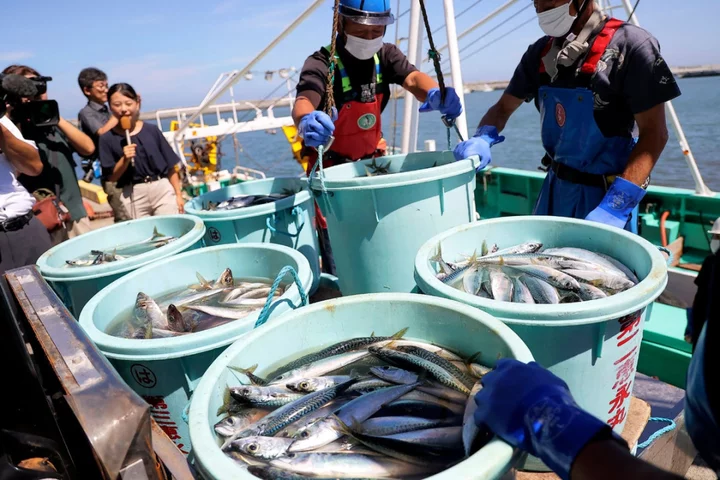HAVERHILL, MASSACHUSETTS: In a joint effort involving multiple police and fire departments, the body of a missing kayaker was discovered in the Merrimack River on Sunday evening, June 25. The kayaker had gone missing while kayaking in Haverhill, according to Massachusetts State Police spokesman David Procopio. The identity of the deceased individual has not been released.
At approximately 6:30 pm, Haverhill firefighters successfully retrieved the kayaker's body from the river, initiating an investigation by the State Police Crime Scene Services Section, Haverhill police, and detectives from the Essex County District Attorney's Office, as confirmed by Procopio. Assisting in the search were various local agencies, the State Police Underwater Recovery Unit, and the Massachusetts Environmental Police. The recovery operation commenced two hours prior to the body's retrieval. No additional details are being disclosed at this time, according to Procopio.
River of Death: Over 31 fatalities in 12 years
The Merrimack River, known for its sparkling, calm surface under the sunshine, often presents itself as an enticing respite from the summer heat. However, this alluring facade has proved rather treacherous, leading to a series of tragic outcomes over the years. On June 9, 2022, Boua DeChhat, aged 30, met her untimely demise while attempting to rescue her 6-year-old son, Mas, who had slipped into the water while the family was fishing near Deer Island in Amesbury. Tragically, both mother and son were swept away by the current and drowned.
Between 2010 and 2022, news reports documented 31 drowning incidents and 21 near-drownings in the Merrimack River, which flows along the border of New Hampshire and Massachusetts. The majority of these incidents involved individuals engaging in swimming or boating activities, with all but four classified as accidental. The consistent occurrence of these fatalities has prompted affected families and communities to wonder if any measures can be taken to mitigate the loss of life.
Authorities and Families Speak Out
Derek Kelleher, a battalion chief with the Concord, NH, Fire Department, acknowledged that the majority of drownings were preventable and underscored the importance of continuous efforts to prevent such tragedies. However, he admitted that it may be challenging to completely eliminate these incidents. "I think everything helps. But realistically, I don't know if we'll ever be able to stop it," Kelleher told The Boston Globe last year. "It's tragic. We've just got to keep trying."
Stretching across 115 miles, the Merrimack River meanders through central and southern New Hampshire before flowing into the Atlantic Ocean in northern Massachusetts. The river, known by Native Americans as Merruasquamack, meaning "swift water place," presents formidable challenges to swimmers. The strong currents, which can reach speeds of 3 to 4 knots (nearly 5 miles per hour), prove treacherous even for experienced swimmers, let alone non-swimmers, according to Boatswain's Mate First Class Joseph Habel, an officer in the Coast Guard at Station Merrimack River in Newburyport.
However, these risks remain shrouded beneath a deceptively calm surface, luring unsuspecting individuals into dangerous waters. Conditions in the Merrimack River are in a constant state of flux. Determining water depths can be difficult, and sudden drops in the riverbed pose unforeseen hazards. Underwater entrapments and obstacles, such as rocks and branches, further increase the risks faced by swimmers. Additionally, the onset of summer brings cold water temperatures that can induce hypothermia.
Consequently, those who are accustomed to swimming in pools or ponds should not assume the same level of comfort in rivers like the Merrimack. The US Centers for Disease Control and Prevention reports that over half of drownings among individuals aged 15 and older occur in open water, including rivers, lakes, and oceans. Habel emphasized the need to never underestimate the river's power, cautioning against complacency. He stated, "Never underestimate the river."
On the other hand, Adam Cheney, a lieutenant with the NH Fish and Game Department, attributed responsibility to individuals rather than the river itself. Cheney asserted that people must take personal responsibility for their actions and avoid situations where they are out of their depth. He said, "If they know they can't swim, they shouldn't be swimming in a river over their head. It's just that simple."
Calls for change amidst grief
Meghan McGonagle, age 19, lost her boyfriend to the Merrimack River in 2020, just north of Concord. Zach Lacy, 15, went to the river with friends to celebrate a birthday when he tragically submerged while tubing and never resurfaced. McGonagle initially found it difficult to accept the reality of the situation, recalling, "I remember driving to the hospital and thinking, 'This isn't happening. It's the wrong kid.'" The circumstances surrounding Zach's death remain unclear, making it the fourth river-related fatality in just four months.
Following the tragic loss, McGonagle initiated a petition aimed at preventing further deaths on the Merrimack. The petition specifically highlighted the dangerous bend between the Boscawen Boat Launch and the Hannah Dustin Memorial, the very location where Zach drowned. McGonagle urged supporters to sign the petition, which called for the closure or regulation of this treacherous section of the river, enhanced enforcement of life jacket laws, the installation of buoys, and a constant patrol of the area. The petition garnered over 8,500 signatures, accompanied by numerous comments from signatories expressing their dismay at the frequency of drownings in the region.
While McGonagle eventually recognized the impracticality of closing sections of the river, she was determined to effect change. She instead advocated for the placement of "mile markers" along the river to facilitate communication and response by rescue teams. Additionally, she called for the state to enforce mandatory life jacket usage in the river, or at the very least, ensure their ready availability. Coast Guard officer Joseph Habel, a proponent of life jacket usage, acknowledged the challenges in mandating their use for all individuals. He remarked, "I can't require a small child on the bank of the river to wear a life jacket. But I have two kids, and I would not let my kids near the river without life jackets."
McGonagle expressed her frustration with the lack of tangible progress in preventing future tragedies, telling the Globe, "Every time someone drowns on the river, they say, 'There was an accident on the river.' You learn from your accidents. You learn from your mistakes. But I feel like nothing changes."
Efforts and Initiatives
Amidst the prevailing grief and frustration, some communities have taken proactive measures to enhance safety along the Merrimack River. Canterbury, New Hampshire, experienced three drownings and three near-drownings in 2020, including the loss of Zach Lacy. Chief Michael Gamache of the Canterbury Fire Department attributes the incidents to erosion near the town's beaches, resulting in a sudden 30-foot drop in the riverbed, comparable to a cliff.
In response, Canterbury installed signs warning of the "strong current and steep dropoff" and providing vital information, including GPS coordinates, to aid emergency dispatchers in directing rescuers. Each beach is now equipped with rescue ropes and rings, enhancing their ability to respond to emergencies. At the state level, the New Hampshire Department of Safety and State Police Marine Patrol collaborated with local communities to develop similar safety signage. Additionally, plans are underway to establish life jacket loaner stations at various river sites, ensuring easy access to life-saving equipment.
Massachusetts communities, including Amesbury, have also begun considering changes to improve safety. Kassandra Grove, the mayor of Amesbury, is actively working on developing and implementing additional safety measures and communication at river sites, including Deer Island. The Massachusetts Department of Conservation and Recreation acknowledges that there are currently no designated swimming areas along the Merrimack River. Ilyse Wolberg, a department spokesperson, points out that ensuring safety along the river poses unique challenges, given its size and the difficulty in monitoring its vast expanse.
As communities grapple with the tragedy and loss of life, the need for preventative measures remains at the forefront. Despite the complexities and inherent risks associated with the Merrimack River, ongoing efforts seek to minimize future incidents and safeguard individuals who may be drawn to its deceptive allure.









